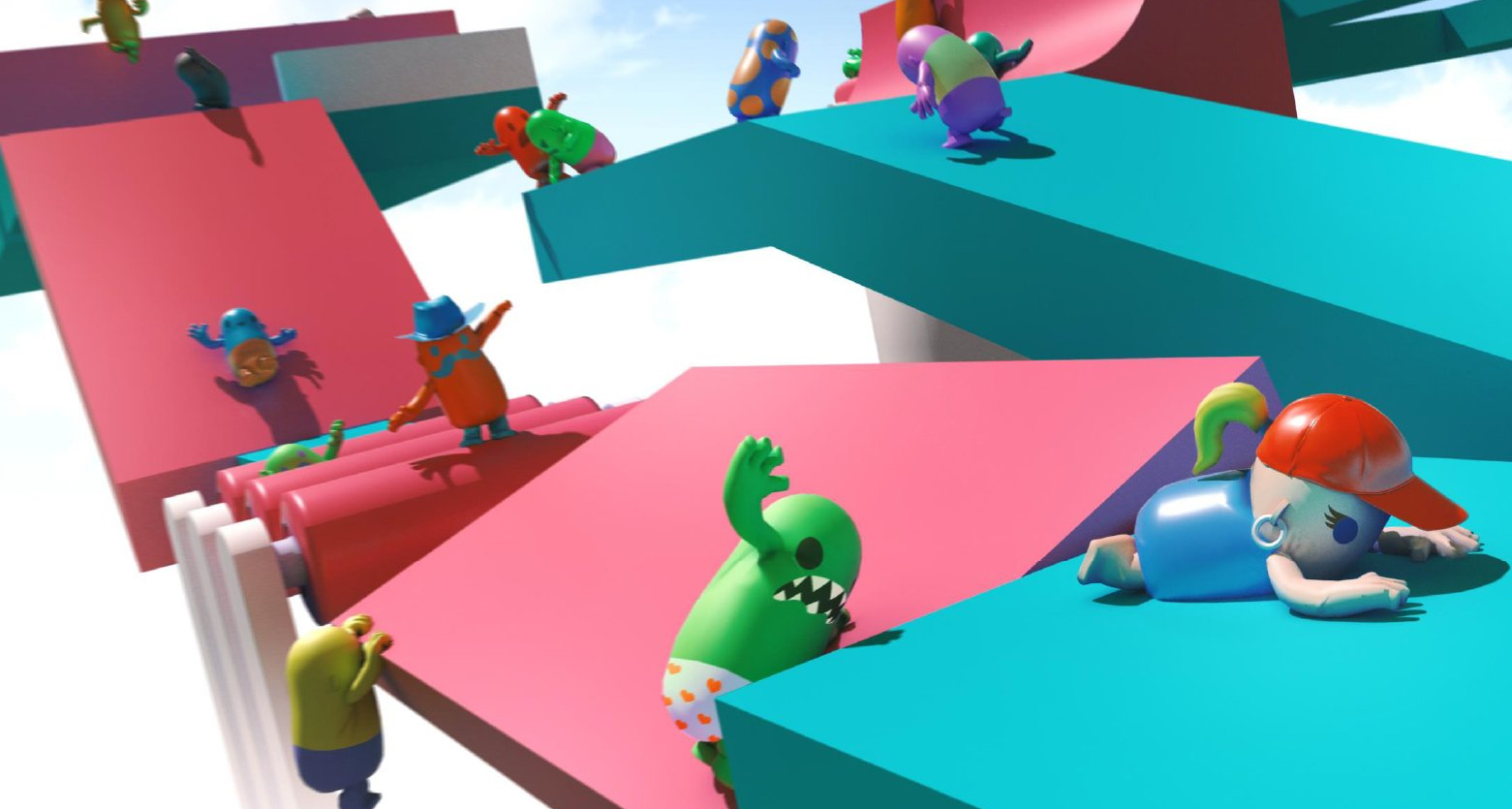Fall Guys origin story reveals it was once called 'Fool's Gauntlet' and 'Stumble Chums'
A tweet thread from Mediatonic's creative director gives us an enjoyable Fall Guys origin story.

Looking for a fun read? Creative director Jeff Tanton of Mediatonic, developer of Fall Guys, posted a long and enjoyable tweet thread about the history of the chaotic party royale game today. It's basically the Fall Guys origin story.
The thread goes into detail about the original pitch for Fall Guys from back in January of 2018, when it was called "Fool's Gauntlet."
Based on Tanton's tweets, at its inception Fall Guys was harsher and more competitive, with no second chances or respawns. The pitch document for Fool's Gauntlet reads: "Another player knocks you off the tightrope? Too bad, game over." Some rounds of Fall Guys work that way, like Jump Club and Roll Out, where if you fall, you're finished. Other Fall Guys minigames, like Tip Toe and See Saw, let you respawn repeatedly if you slip off the edge.
Enter Dan Hoang (@danhoangart) our principal concept artist who'd been messing about in Blender and very quickly produced our proto-game characters and colourful obstacle-course in the clouds. It instantly looked fun, clean, understandable. pic.twitter.com/lGv97MD4mDAugust 20, 2020
Fool's Gauntlet was pitched as a 100-player game that shifts from "teamwork to backstabbing as players whittle out the weak and assemble a skeleton team of the best performing players for the final challenge." The Fall Guys (which was also once called "Stumble Chums") we eventually got is a 60-player game, trimmed down from 100 players because, as Tanton says, "over a certain size, the games stopped being readable or fun."
Tanton also talks about pitching Fall Guys to around 10 different publishers at the Game Developers Conference. It was published by Devolver Digital, who'd previously published Mediatonic's Hatoful Boyfriend—and I'm guessing those other nine publishers are probably kicking themselves for not inking a deal right about now.
Fortunately I'd loaded the first two slides of the deck with star-wipes into Takeshi's Castle gifs. I recommend everyone does this even if it has absolutely zero connection to the game you're pitching - really sets a tone. pic.twitter.com/46CNl0UHw9August 20, 2020
There's plenty more to the thread, including early concept art of game levels and Fall Guys' bean characters, and lots of shout-outs to Mediatonic artists, designers, coders, and staff. You can read the whole thread top top bottom here.
Keep up to date with the most important stories and the best deals, as picked by the PC Gamer team.

Chris started playing PC games in the 1980s, started writing about them in the early 2000s, and (finally) started getting paid to write about them in the late 2000s. Following a few years as a regular freelancer, PC Gamer hired him in 2014, probably so he'd stop emailing them asking for more work. Chris has a love-hate relationship with survival games and an unhealthy fascination with the inner lives of NPCs. He's also a fan of offbeat simulation games, mods, and ignoring storylines in RPGs so he can make up his own.

